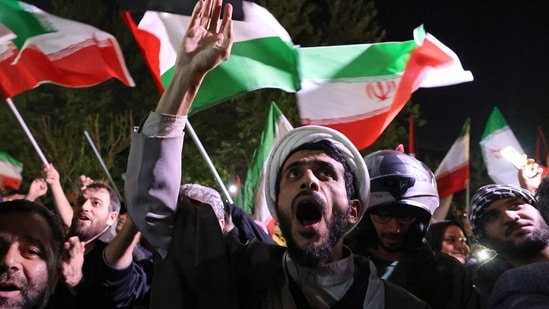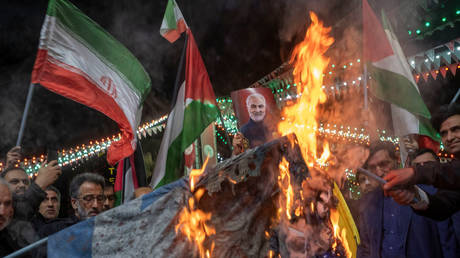India’s expression of serious concern over the escalating tensions between Iran and Israel underscores the potential ramifications of conflict in the Middle East, particularly on global crude oil prices. As two significant players in the region, any hostilities between Iran and Israel could disrupt oil supplies and trigger market volatility, impacting not only India but also economies worldwide that heavily rely on oil imports.
Iran and Israel are key actors in the geopolitics of the Middle East, and their confrontation has the potential to disrupt oil transportation routes, particularly through the strategic Strait of Hormuz, a vital chokepoint for global oil trade. Any disruption in oil supply from the region could lead to a surge in crude oil prices, affecting India’s energy security and economic stability.

Source:- BBC News
India is one of the world’s largest importers of crude oil, with a substantial portion of its energy needs met through imports from the Middle East, including Iran. Therefore, any instability in the region has direct implications for India’s energy security and economy. A sudden spike in crude oil prices could result in higher fuel costs, inflationary pressures, and a widening current account deficit, posing challenges for India’s growth trajectory.
Source:- India today
Moreover, elevated oil prices could strain India’s fiscal balance, as the country subsidizes fuel prices to cushion the impact on consumers. Increased expenditure on oil imports could also put pressure on the Indian rupee, affecting exchange rates and external trade dynamics.
Furthermore, the impact of rising oil prices extends beyond the energy sector, affecting various industries and consumer spending patterns. Industries such as transportation, manufacturing, and agriculture, which rely heavily on petroleum products, would face higher input costs, potentially leading to production cuts, job losses, and reduced consumer purchasing power.
To mitigate the impact of geopolitical tensions on oil prices, India may explore alternative sources of crude oil imports and diversify its energy mix by investing in renewable energy sources. Additionally, the Indian government could consider implementing measures to enhance energy efficiency, promote domestic oil production, and build strategic petroleum reserves to buffer against supply disruptions.
India’s diplomatic efforts to de-escalate tensions between Iran and Israel are crucial in maintaining stability in the region and safeguarding its energy interests. Engaging in dialogue and diplomatic channels to address the root causes of conflict and advocating for peaceful resolutions are essential steps in averting potential disruptions to global oil supplies and stabilizing crude oil prices in the long term.
Share your views in the comments

